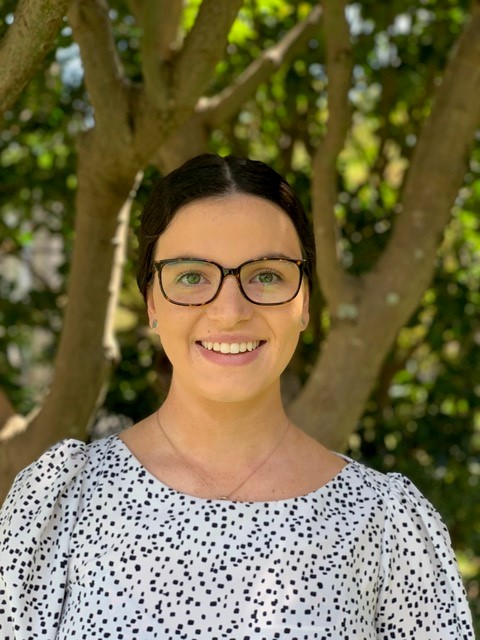Brittany Abraham knew she wanted to help people, ever since a freak accident at 15 years old left her paralysed from the neck down.
Since coming to UNE to study nursing and psychology, helping Indigenous students navigate the university experience has become her passion, as both a tutor and one of four new Indigenous Knowledges Lecturers.
Britt says:
“I enrolled in a Bachelor of Nursing to be that intensive care nurse that helped me after my accident and to give back that gift of life that I was given. I ended up studying a Bachelor of Psychological Science concurrently in my final year of Nursing.
“At first, I found the university experience really daunting. I signed up for a tutor through the Oorala Centre, and that was one of the best things I ever did. A tutor is not only able to help you and support you academically, but that relationship that you build with them, and that support that you get, is just absolutely phenomenal. I probably wouldn’t have achieved so well if it wasn’t for my tutor, and for the support from the School of Nursing.
“I didn’t feel ready to work as a nurse in the clinical setting straight away, but while studying – and now completing an Honours year in Psychology – I’ve been able to achieve my goal of helping others in a different way.
“I work as a tutor through the Oorala Centre, tutoring students in nursing subjects, psychology subjects, and then also foundational subjects, like in the TRACKS program as well. I love being able to help students grow academically and achieve well at university, but also provide that moral support.
At first, I found the university experience really daunting. I signed up for a tutor through the Oorala Centre, and that was one of the best things I ever did. That support that you get, is just absolutely phenomenal.
“A lot of the students are the first in their families to go to university. I know on my mother's side I was the first to attend university. So helping them through that, and being that person that they can chat to and ask how everything works – from the student learning platform, Moodle, to the different university procedures – is very rewarding. I absolutely love it.
I’m also now employed by the Faculty of Health and Medicine as an Indigenous Knowledges Lecturer, to help students studying in medicine and health related fields to achieve academic success, improve retention and build a sense of community among our Indigenous cohort in the faculty.
Studying online can be isolating, so connecting students and making them aware of the support available is really important. The role also includes working with the faculty on curriculum development, and improving some of the curriculum to make it more inclusive of Aboriginal and Torres Strait Islander culture and communities.
There are four new Indigenous Knowledges Lecturers across the university, and we work together side-by-side. We have established the UNE Indigenous community sessions this trimester to bring all our students together to catch up and share successes and challenges, to provide community and support. Next year we hope to bring in some guest speakers.
We also work together to think of ways that we can increase student success and retention at UNE and on things like curriculum development and cultural safety and cultural awareness training.
My tips for Indigenous students getting started at UNE are: reach out for support. Contact the Oorala Centre and the student engagement officers. Everyone's there to help. Apply for a tutor. Say yes – take in all of the opportunities that land in front of you. Ask questions. You can achieve your dreams and your goals, and you can do anything that you set your mind to.
Meet UNE's other Indigenous Knowledges Lecturers:


